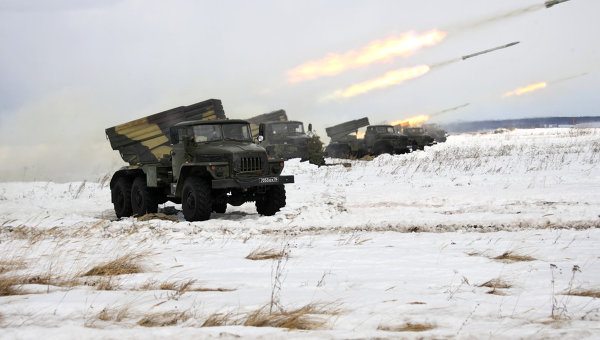Russia is developing new long-range multiple-launch rocket systems (MLRS) with improved guidance that could allow them to strike targets up to 120 miles (200 km) away, the Defense Ministry’s artillery spokesman said on Monday.
“We have the military-technical potential to create a new generation of MLRS with a range of 200 km,” Lt. Col. Nikolai Donyushkin said.
Russia’s artillery currently deploys the 122-mm Grad, 220-mm Uragan, and 300-mm Smerch rocket systems and the improved Tornado-S, Tornado-G, and Uragan 1-M are currently undergoing state acceptance trials. The army is in the process of receiving up to 30 Tornado-G systems this year, replacing the BM-21 Grad.
The improved Tornado-S is being upgraded with the special GLONASS satellite navigation system used in the Smerch missile system, Donyushkin said. The Tornado-S will have guided rocket rounds enabling it to fire out to 72 miles (120 km).
“The Tornado-S will have a longer range and increased effectiveness thanks to greater accuracy and the use of new warhead payloads and a reduced launch readiness time of just three minutes,” he said.
The army is gradually moving toward a new level of capability for deploying precision use of long-range rocket artillery, he said.
“Massed use of high-precision weapons makes it possible to be certain of destroying high-value targets before they can be used on the battlefield by main-force groups. Fewer rounds need to be fired, simplifying logistics,” he added.










